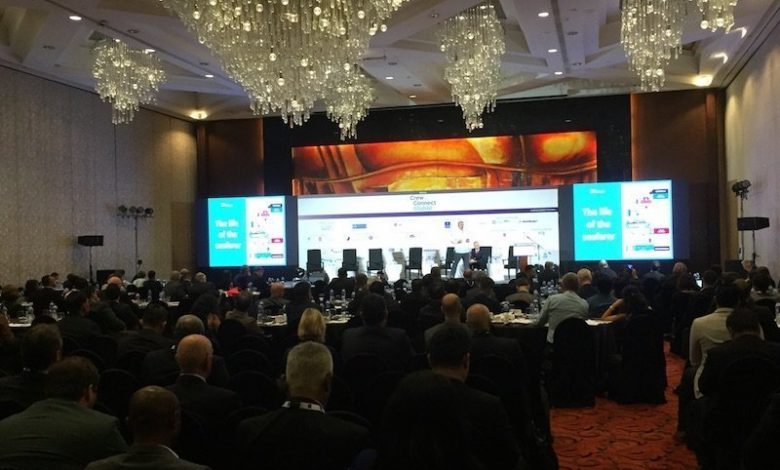Rallying call to fix shipping’s gender imbalance

At a high profile event in Manila yesterday the Philippines’ first ever female chief engineer issued a stark reminder to shipping executives around the world, stressing that the right person for any maritime job should be settled not by gender but by competence.
Shipping’s huge gender gap was addressed at yesterday’s CrewConnect event in the Philippine capital. The industry remains one of the most imbalanced in the world, although finally the situation is changing, delegates were told.
According to the ITF Seafarers’ Trust, only 1% of the world’s seafarers are women. Women have all too often the the worst paid roles and are found working in the least protected of jobs at sea.
Karen Walthan, managing director, HR Consutling at Spinnaker Global, said she believes the issue of diversity and inclusion is a business issue rather than a women’s issue.
Angie Hartmann, vice president of crew affairs at Star Bulk and president of the Women’s International Shipping & Trading Association (WISTA) Hellas, said she has noticed that the diversity of women’s roles in shipping has been gradually growing in the past few years, noting how her company has hired female technicians onboard tankers lately.
“Seagoing experience is dynamic and realistic. We must know that every woman seafarer can settle for a job ashore, which values her skills, knowledge and experience,” said Nina Sue Da Silva, branch manager at shipmanager OSM.
Da Silva is the Philippines’ first female chief engineer onboard a ship and runs OSM’s Cebu branch.
According to the OSM executive, the training and experience acquired from a career in shipping can be used across industries ashore and many diverse areas including instructing in maritime institutions, shipmanagement, maritime regulatory agencies, auditing, technical consultant cy and superintendent jobs.
“Women seafarers are continuously proving their worth in the industry and gender should never be used as an excuse when it comes to employment onboard as long as one can deliver and perform the job. The issue of who is the right person for the job should be settled not by gender but by competence. The industry needs to understand that what is good for men is also good for women. It’s hard to have a coordinated response because it’s a global industry with multicultural crews, cultural differences and hierarchies of rank. This needs wide cooperation, collaboration and patience,” said Da Silva.
The panelists all agreed that mentoring as positive affirmation initiatives between new cadets and more experienced officers can be extremely valuable.
“This should incorporate the transfer of knowledge and the provision of a listinening ear for the new recruits when issues arise at sea, which might be hard for them to deal with as a less experienced sailor,” Hartmann said.
WISTA has released a new booklet on building gender diversity onboard merchant ships, addressing critical social, cultural, and interpersonal issues that can affect the productivity of seafarers.
“Shipping should provide short-term and long-term work goals in empowering their women seafarers. There must be a special program in retention and sustainability. Mentoring is key when getting women into new industries by developing sponsorship and coaching programs to help more women advance,” Da Silva concluded.
